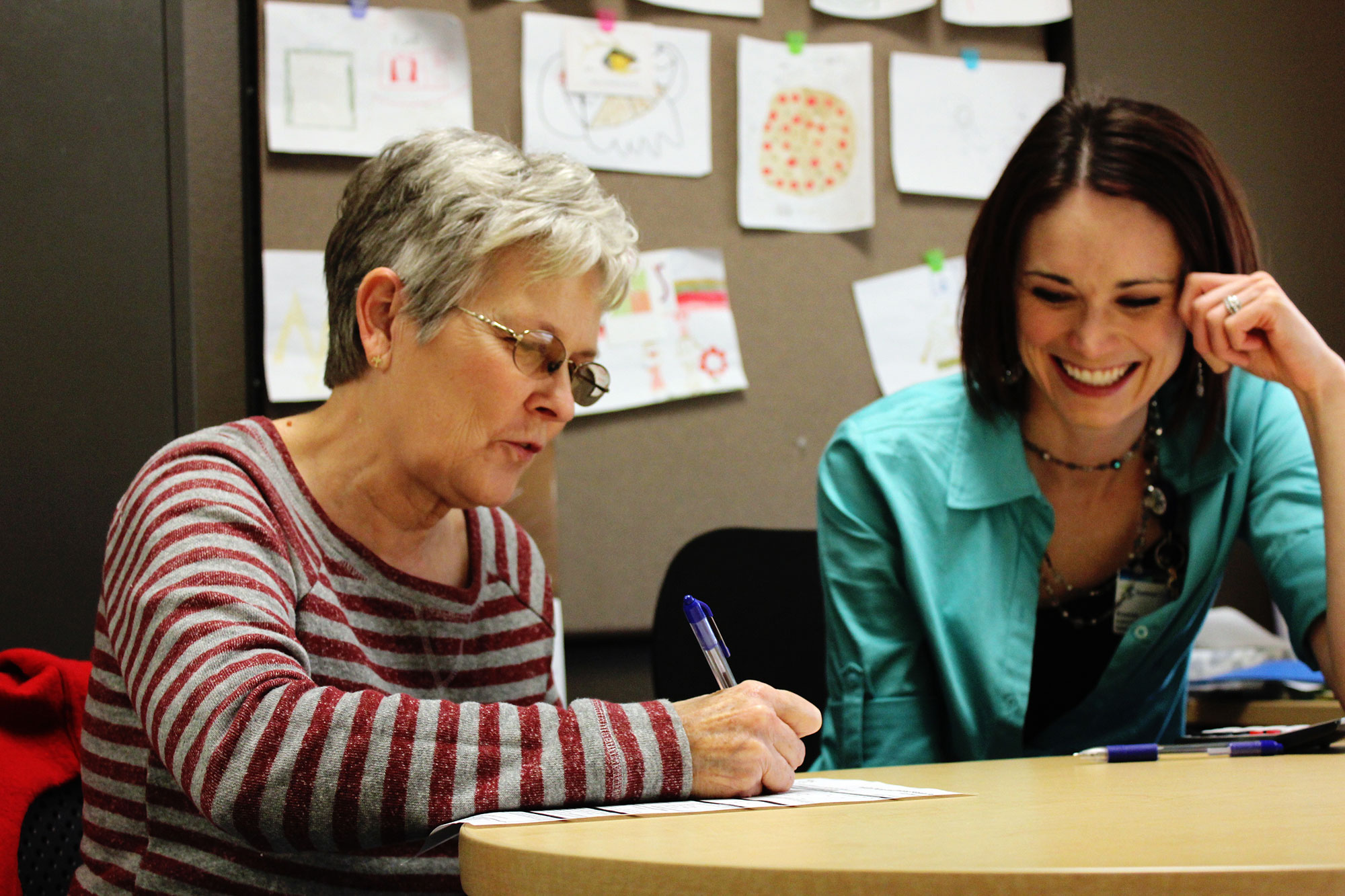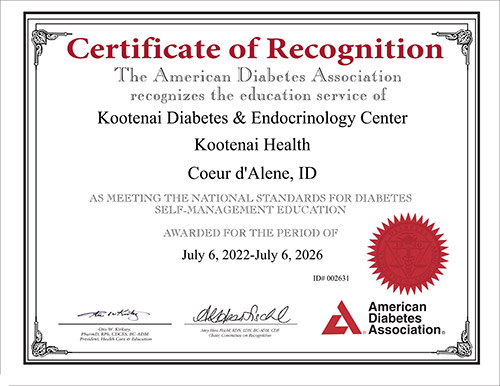Kootenai Clinic provides consultation and treatment for many endocrine disorders, including: thyroid disease, parathyroid conditions, adrenal disease, pituitary disorders, metabolic abnormalities and diabetes.
We also have a complete diabetes education program that has been recognized by the American Diabetes Association for quality patient education.
Locations
Kootenai Clinic Diabetes and Endocrinology
Friday 8:00am - 12:00pm
Our Providers
Learn More
Related Articles
Diabetes Education
Diabetes education provides clients with the knowledge and skills needed to successfully manage their diabetes. Controlling your blood sugar helps you feel better and prevents complications from diabetes. All educators at Kootenai Clinic’s diabetes education program are CDCESs (Certified Diabetes Care & Education Specialists) as well as Registered Dietitian Nutritionists (RDNs). This multi-disciplinary credential assures that the educator you see is knowledgeable and experienced in all areas of diabetes care.
Diabetes education is covered by Medicare, Medicaid, and most major commercial insurances with a doctor’s referral.
Diabetes Education Services
- Type 2 diabetes basics course: This comprehensive eight hour course is designed for individuals newly diagnosed with type 2 diabetes, or those new to diabetes education.
- Diet education: our CDCESs are registered dietitians, who are outstanding leaders in the field of medical nutrition therapy. A variety of nutrition needs can be addressed and incorporated into your diabetes care plan.
- Glucose monitoring: an educator will help choose the best glucose meter and/or continuous glucose monitor (CGM) for your needs and instruct on the value and technique of blood sugar testing.
- Insulin training: our CDCESs can provide the skills needed to successfully use insulin for the management of diabetes
- Insulin pump training: our diabetes educators are certified insulin pump trainers for all major pump companies.
- Intensive management skills: learn how to use a correction factor and carbohydrate ratio to dose insulin as well as blood sugar pattern management.
- Professional Continuous Glucose Monitoring (CGM) studies: this physician ordered study will help obtain valuable data to help patients get a better idea of blood sugar patterns.
Accreditation
Kootenai Clinic’s diabetes education program is accredited by the American Diabetes Association. This accreditation signifies that our program meets the criteria for national standards for diabetes self-management education to ensure quality care. For more information visit https://professional.diabetes.org/diabetes-education
Patient Forms
Diabetes Education Referral Information (For Providers)
Diabetes education provided by a Certified Diabetes Care & Education Specialist (CDCES) requires a physician order. If you would like to refer your patient to our diabetes self-management education (DSME) program, please use the referral form attached.
Medicare patients can receive ten hours of education their first year of diagnosis plus three hours of medical nutrition therapy. This allows them to attend comprehensive education classes and meet with a CDCES throughout the year. In subsequent years, Medicare will cover two hours of education per year. All newly referred patients will first be assessed individually by the diabetes educator, and then have the option to attend classes.
Continuity of care is important to us. After your patient’s initial appointment, you will be asked to sign and return DSME orders authorizing the number of visits for your patient in a calendar year. You will also receive a diabetes education chart note with your patient’s individual education plan and recommendations.
Additional Resources (For Patients)
- www.diabetes.org – American Diabetes Association (ADA)
- www.diabeteseducator.org – Association of Diabetes Care and Education Specialists (ADCES)
- https://diatribe.org/
- www.diabetesfoodhub.org – Diabetic friendly recipes from the ADA
- Taking Control Of Your Diabetes® | Edutaining the Diabetes Community Since 1995 (tcoyd.org)
Gestational Diabetes
What is gestational diabetes?
Pregnant women can develop a condition known as Gestational Diabetes, which is high blood sugar (diabetes) brought on by pregnancy. According to the Centers for Disease Control and Prevention, gestational diabetes is estimated to occur in 2 to 10 percent of pregnancies in the United States.
Why should I take a screening test?
It is important to screen for gestational diabetes because high blood sugar (glucose) can lead to health problems for mother and baby. Gestational diabetes typically develops between the 24th and 28th weeks of pregnancy. A glucose tolerance test is a common type of screening for potential gestational diabetes.
Routine screening for gestational diabetes:
- First glucose screening test is used to see if you are at risk for having gestational diabetes. It is taken between 24-28 weeks of pregnancy. You may need to take the screening test early, if you have had gestational diabetes or your physician thinks you may at risk.
- Follow-up glucose tolerance testing is used to see if you have gestational diabetes.
Next Steps
If you are diagnosed with gestational diabetes, you will first attend a class with a diabetes educator to learn how to manage your diabetes with lifestyle modifications. Individual appointments may be made if you cannot attend class.
Next, you will meet with our Nurse Practitioner who will evaluate your blood sugar test results, order labs, and determine what your next steps will be.
Keeping your blood sugar under control will reduce the risks to both you and your baby. You will need more frequent prenatal care visits to make sure your blood sugar does not go too high. Many mothers will control their gestational diabetes with blood sugar testing, diet and exercise. Some women may need medications to help reach normal blood sugar levels even with lifestyle modifications.
Patient Forms:
Additional Resources:
www.acog.org – American College of Obstetricians and Gynecologist




